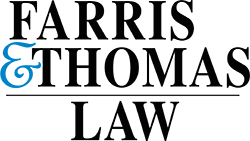For the most part, liability for car crashes falls to one of the drivers involved in the incident. Motorists who break the law and/or who fail to pay attention at the wheel generally have to provide compensation to those who get hurt or suffer significant property damage losses in a wreck that their negligence caused.
Unfortunately, many of the people who cause crashes don’t have enough insurance needed to address the impacts of their decisions. Their insufficient coverage can leave the people affected worrying about how they will pay their bills and/or replace their vehicles.
Occasionally, those affected by a car crash may have reason to file a claim against a business instead of or in addition to another driver. When may a company be partially to blame for a recent car crash?
1. When the driver was on the clock
The most common reason that a business might have liability for a crash relates to the employment status of the driver. Businesses may have financial responsibility for any wrecks caused by their employees while performing their jobs. Delivery drivers and those with commercial driver’s licenses aren’t the only ones who put their employers at risk. A manager going to the store to buy supplies or A salesperson on the way to a client’s facility to take measurements could also leave their employer open to liability if they cause a crash.
2. When the driver got drunk at a business
North Carolina state law limits the service of alcohol in a few notable ways. One of the most important is that licensed establishments cannot lawfully continue to sell alcohol to someone who is already visibly under the influence. The dram shop laws in North Carolina allow those hurt by a drunk driver who was overserved at a licensed bar or restaurant to bring a claim against the business for the consequences of the wreck.
3. When issues with a vehicle caused the crash
Maybe someone just bought a used vehicle at a dealership that intentionally covered up defects and left that motorist vulnerable to system failures on the road. Perhaps there was a defective component in one of the vehicles that caused the crash. Businesses that sell, repair and manufacture motor vehicles can sometimes be partially liable for crashes that result from defects in those vehicles.
Especially if a collision leaves someone with serious injuries and forces them to take a leave of absence from work, looking into every option will be in the best interests of those affected by the crash. Holding businesses accountable for their contributions to motor vehicle collisions can potentially help people more thoroughly cover their expenses after a wreck.

